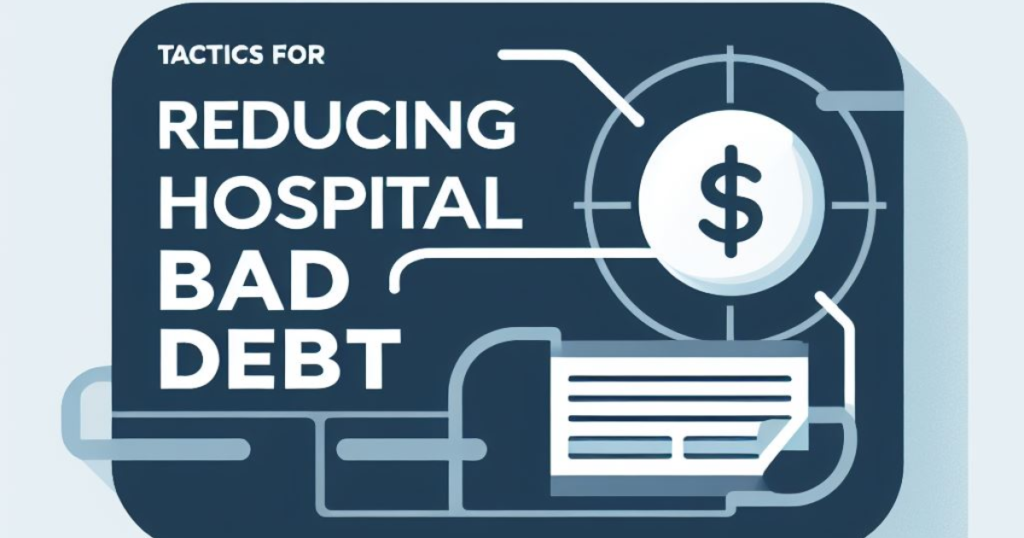
Medicaid, the federal-state insurance program aimed at providing healthcare coverage to low-income individuals and families, has undergone a transformative journey to address its challenges. Over the years, Medicaid has evolved from a fee-for-service model to a value-based, managed care delivery system, revolutionizing the way healthcare is provided to millions of Americans.
Today, a staggering number of approximately 75 million Americans rely on Medicaid-managed care plans for their healthcare needs. This signifies a significant shift towards a comprehensive, patient-centered approach that ensures coordinated and efficient care delivery. At the heart of this system lie Managed Care Organizations (MCOs), which play a crucial role in orchestrating healthcare services for Medicaid beneficiaries.
These MCOs assume responsibility for managing provider networks, coordinating care, and implementing strategies to enhance healthcare quality while controlling costs. The influence of MCOs in shaping the landscape of Medicaid-managed care cannot be overstated.
Let’s delve into what you’ll discover in this article, focusing on Medicaid Managed Care and its various aspects, including the key players involved, contracted Managed Care Organizations (MCOs), and six recent updates that may impact healthcare providers.
The Key Players in Medicaid Managed Care
Understanding the main players in Medicaid-managed care provides insight into how healthcare services are delivered and accessed by Medicaid beneficiaries. It also highlights the collaboration between state Medicaid agencies, MCOs, providers, and the individuals who rely on Medicaid for essential healthcare coverage.
1. State Medicaid Agencies:
- Responsible for designing, overseeing, and administering Medicaid programs within their respective states.
- Contract with managed care organizations (MCOs) to provide health services to Medicaid beneficiaries.
2. Managed Care Organizations (MCOs):
- Private non-profit, for-profit, and government insurance plans enter into contracts with state Medicaid agencies.
- Deliver healthcare services to Medicaid beneficiaries through their network of providers.
- Receive a set fee for each Medicaid beneficiary’s health services delivered within their contracted provider network.
Example: UnitedHealth Group, Centene, Molina, and Aetna, are some of the major MCOs operating in multiple states. These organizations play a significant role in managing and coordinating care for Medicaid recipients.
3. Providers:
- Healthcare professionals, clinics, hospitals, and other healthcare facilities that deliver medical services to Medicaid beneficiaries.
- Contracted by MCOs to be part of their provider networks, ensuring access to care for Medicaid recipients.
- Providers may include primary care physicians, specialists, hospitals, and other healthcare specialists.
4. Medicaid Beneficiaries:
- Individuals and families who qualify for Medicaid based on their income, disability status, or age.
- Divided into three primary sub-groups:
- Low-income individuals and families who lack access to employer-sponsored health plans.
- Individuals with disabilities require Medicaid-covered services.
- Elderly individuals for whom Medicaid pays for non-Medicare-covered services.
Medicaid Managed Care Plan Patients: Understanding the Beneficiary Landscape
Medicaid-managed care plans have played a crucial role in improving healthcare access and outcomes for these diverse patient groups. By providing comprehensive coverage and access to a network of healthcare providers, these plans contribute to better health outcomes and improved quality of life for Medicaid beneficiaries.
1. Low-Income Individuals and Families:
- Medicaid provides crucial healthcare coverage to low-income individuals and families who lack access to employer-sponsored health plans.
- These individuals often face financial constraints and rely on Medicaid to access essential healthcare services.
Example: A single mother with limited income, qualifies for Medicaid. Through a managed care plan, she can receive comprehensive medical care, ensuring the health and well-being of herself and her children.
2. Individuals with Disabilities:
- Medicaid plays a vital role in supporting individuals with disabilities by covering a range of necessary healthcare services.
- These individuals often have complex medical needs and require specialized care and support.
Example: A person who has a physical disability relies on Medicaid-managed care to access specialized therapies, medical equipment, and disability-related services, enabling them to lead a more independent and fulfilling life.
3. Elderly Individuals:
- Medicaid covers non-Medicare services for elderly individuals, including long-term care and assistance with activities of daily living.
- These services are essential for elderly individuals who may have limited financial resources and require support to maintain their health and well-being.
Example: An elderly individual with chronic health conditions receives Medicaid-covered home healthcare services through a managed care plan. This allows them to receive the necessary assistance and support to age comfortably in their home.
4. Previously Uninsured Adults:
- Before the implementation of the Affordable Care Act (ACA), many low-income adults went uninsured.
- Medicaid expansion under the ACA extended coverage to these individuals, improving access to healthcare and reducing financial barriers.
Example: A part-time worker in a low-wage job, who does not have access to employer-sponsored health insurance, makes an excellent example for this. After the Medicaid expansion, he/she becomes eligible for coverage and can now receive necessary medical care without worrying about the financial burden.
Contracted Managed Care Organizations (MCOs): The Cornerstones of Medicaid Managed Care
Contracted Managed Care Organizations (MCOs) are at the heart of Medicaid managed care, serving as the linchpin between state Medicaid agencies and healthcare providers. Here are the key facts and functions of MCOs in the Medicaid landscape:
Definition and Types of MCOs:
- MCOs are entities that enter contracts with state Medicaid agencies to provide healthcare services to Medicaid beneficiaries.
- They can be categorized into three types: private non-profit, private for-profit, and government insurance plans.
Provider Network Management:
- MCOs establish and maintain a network of healthcare providers, including primary care physicians, specialists, hospitals, clinics, and other healthcare facilities.
- These networks ensure that Medicaid beneficiaries have access to a wide range of healthcare services within their local communities.
Capitated Payments:
- MCOs receive capitated payments from state Medicaid agencies for each Medicaid beneficiary enrolled in their managed care plans.
- Capitated payments are fixed, pre-arranged monthly payments per patient, covering a range of services provided by the MCO’s network of providers.
Quality and Performance Management:
- MCOs are responsible for ensuring the quality and efficiency of healthcare services provided to Medicaid beneficiaries.
- They implement quality improvement programs, conduct performance assessments of their network providers, and monitor healthcare outcomes.
Network Adequacy Standards:
- MCOs must meet network adequacy standards set by state Medicaid agencies to ensure that beneficiaries have timely access to healthcare services.
- These standards are based on factors such as travel time and distance between beneficiaries and network providers.
Contracted Managed Care Organizations (MCOs) are the vital link between state Medicaid agencies and the healthcare providers who deliver care to Medicaid beneficiaries. By managing provider networks, receiving capitated payments, ensuring quality and performance, and meeting network adequacy standards, MCOs play a pivotal role in facilitating access to comprehensive healthcare services for Medicaid recipients.

Important Medicaid Managed Care Updates That Impact Providers and MCOs
Medicaid managed care is subject to updates and amendments that can significantly impact healthcare providers and contracted Managed Care Organizations (MCOs). Let’s explore some crucial updates that have implications for both parties:
1. Network Adequacy:
- Previously, network adequacy was determined based on patient or enrollee travel time and distance to providers within an MCO’s network.
- Updated regulations now allow states to qualify networks as “adequate” using any quantitative standard they deem appropriate.
2. Quality Oversight and Reporting:
- In the past, states’ managed care quality rating systems (QRS) had to provide information comparable to the CMS-developed QRS.
- Updated regulations require states to yield CMS-comparable data only to the extent feasible, allowing more flexibility in developing their QRS.
3. Capitation Rates:
- Previously, states were required to set a single rate per cell for capitation payments.
- Updated regulations grant states the flexibility to establish capitation rate cell ranges, providing more room for variation and negotiation.
4. Payments:
- Previous guidelines permitted states to adopt minimum or maximum fee schedules for plan payments to providers.
- Updated regulations introduce two minimum fee schedules for states to direct payment arrangements from health plans to providers.
5. Encounter Data:
- Formerly, federal-to-state matching funds were based on states reporting patient-encounter data.
- Updated regulations now require plans to include allowed and paid amounts when submitting encounter data, providing a more comprehensive view of healthcare utilization and costs.
6. Provider Directories and Cultural Competency Reports:
- Updated regulations remove the requirement for health plans to identify providers who have completed cultural competency training in their network directories.
- Monthly network directories are now updated electronically, where possible, and printed directories are updated quarterly.
These updates reflect the evolving landscape of Medicaid managed care, offering states and MCOs more flexibility in areas such as network adequacy, payment structures, data reporting, and cultural competency requirements. Providers and MCOs must stay informed about these updates to ensure compliance, adapt their operations, and continue delivering quality care to Medicaid beneficiaries.
References
- Centers for Medicare & Medicaid Services (CMS) – Official website of CMS, the federal agency responsible for administering Medicaid and implementing updates and regulations: https://www.cms.gov/
- Medicaid.gov – Official website of the Medicaid program, providing information on program updates, policies, and resources: https://www.medicaid.gov/
- Kaiser Family Foundation – A trusted source for healthcare policy and research, including information on Medicaid managed care: https://www.kff.org/
- Healthcare News Websites – Explore reputable healthcare news websites that cover Medicaid and managed care topics, such as Modern Healthcare (https://www.modernhealthcare.com/) or Healthcare Dive (https://www.healthcaredive.com/)
- 10 Things to Know About Medicaid Managed Care | KFF
- CMS’s 2020 Final Medicaid Managed Care Rule – Issue Brief – 9271-02 | KFF




